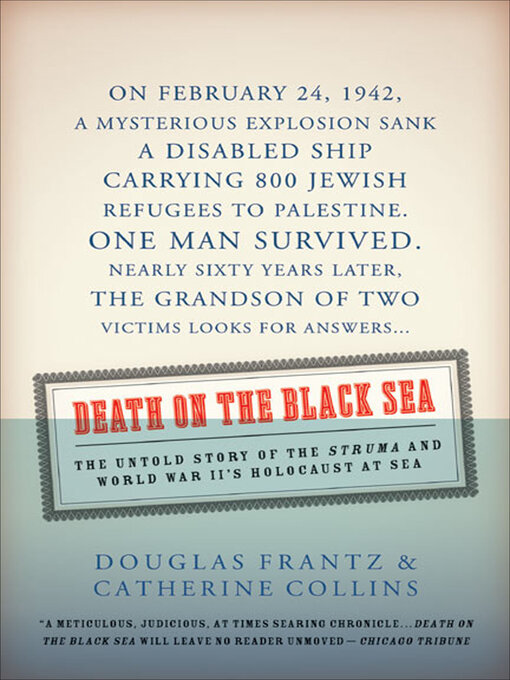On the morning of February 24, 1942, on the Black Sea near Istanbul, an explosion ripped through a decrepit former cattle barge filled with Jewish refugees. One man clung fiercely to a piece of deck, fighting to survive. Nearly eight hundred others — among them, more than one hundred children — perished.
In Death on the Black Sea, the story of the Struma, its passengers, and the events that led to its destruction are investigated and fully revealed in two vivid, parallel accounts, set six decades apart. One chronicles the international diplomatic maneuvers and callousness that resulted in the largest maritime loss of civilian life during World War II. The other recounts a recent attempt to locate the Struma at the bottom of the Black Sea, an effort initiated and pursued by the grandson of two of the victims. A vivid reconstruction of a grim exodus aboard a doomed ship, Death on the Black Sea illuminates a forgotten episode of World War II and pays tribute to the heroes, past and present, who keep its memory alive.

